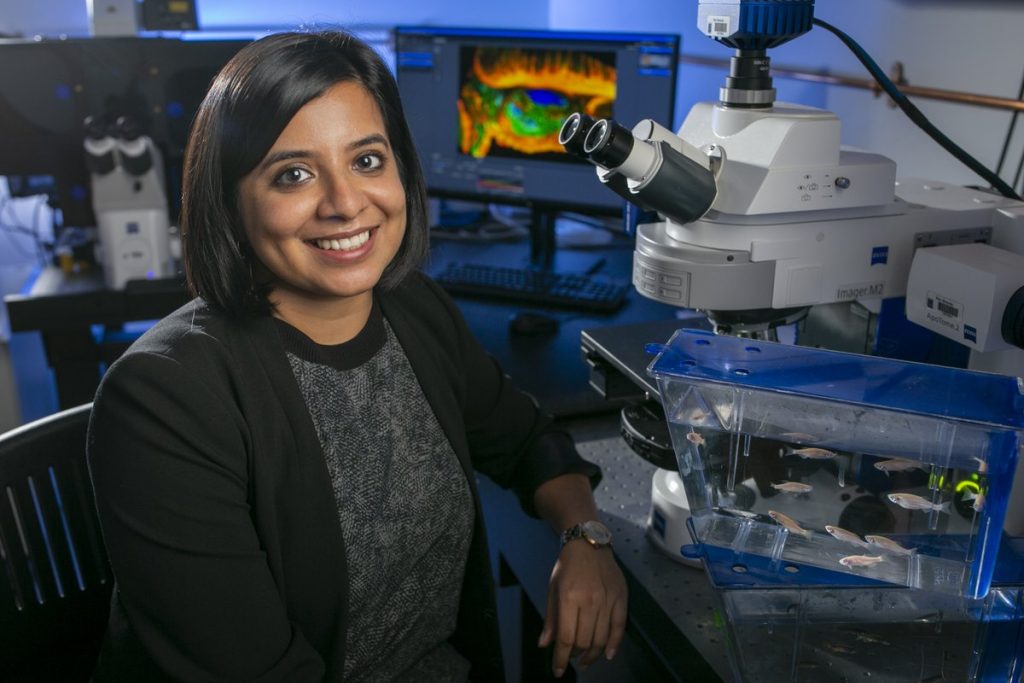Dr. Akankshi Munjal is a developmental biology researcher at Duke University, who studies the development and mutations of inner ear tissue in zebrafish, and how that may be caused by genome disorders.

From a young age, Munjal has been fascinated by watching things being built and developed. Her grandfather was a civil engineer, and she was inspired by the many blueprints littering his home. Growing up, she wanted to be an architect.
Though she found inspiration elsewhere, and did not pursue architecture, in a way, her career mirrors this, “I guess I am not an architect, but I still watch embryos being built, so that kept with me – how you shape things.”
The inspiration of Munjal’s current career came to her in high school. Growing up, she lived in a large city in India, and did not have much exposure to science fields and research. “If you don’t see it around you, it’s not something you see as an option.”
However, she was able to find inspiration from a few of her instructors, “There were some teachers who were very inspiring in exposing that there is research out there, that you can be at the bench, ask questions, and address them using experiments.”
She was also involved with a project dealing with bacteria that could process heavy metals in the Yamuna river near Delhi, India, and this helped introduce the idea of research as a potential career path.
Though most of Munjal’s work has moved toward lab management, the research is what she really loves, “I could spend days in the microscope room, watching development happen.”
The interesting thing about zebrafish, is that their eggs are transparent, and develop outside of the parent organism. This provides an incredible way to observe the development of tissues under a microscope. Zebrafish also share 70% of the DNA of humans, which makes them a great model organism to observe human disorders and how they affect tissue. The ability to witness this development is Munjal’s favorite part of the job,“It’s why I love what I do, we are able to watch these things happen, in the lab.”
When asked what she wished she would’ve learned earlier on, she mentioned the classic comparison of teaching a man to fish, as opposed to giving him a fish. She applies this saying to the process of learning. In her earlier education, there was an emphasis on collecting and memorizing information and facts, rather than learning how to gather knowledge. An emphasis on academic intelligence, as opposed to emotional intelligence.
Looking back, this presentation and memorization of facts was less helpful, “Some of them are not facts, some of them are interpretations, so if there was more information on collecting knowledge, that would be more helpful.”
Munjal loves to watch things being developed. This not only applies to her research in developmental biology, and her former passion for architecture, but also to her love of collecting knowledge.

